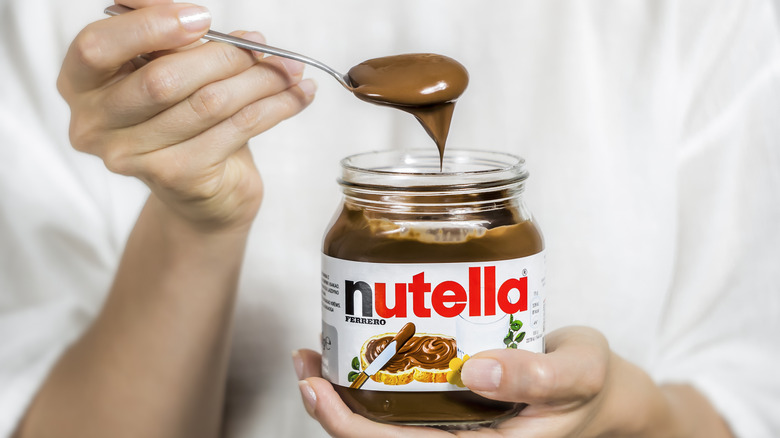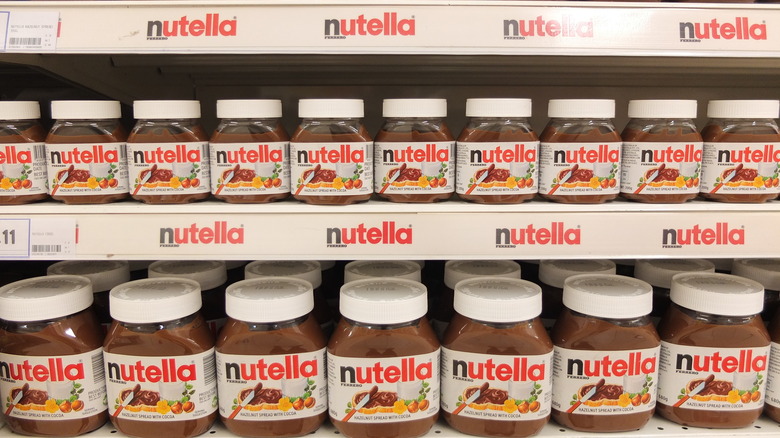The Reason Nutella Got Into Legal Trouble For Its Advertisements
Nutella — the luscious chocolate hazelnut spread — has been tickling taste buds since 1946, although it was then referred to as Giandujot, according to Nutella.com. This first form of Nutella was shaped into a block and was sliced before being slathered onto bread. The official site says that the recipe transformed into the Nutella we all know and love today in 1964.
Nutella may be adored by sweet tooth snackers all over the world, but the brand has had its fair share of bad press. The chocolate spread is often associated with breakfast — due to it being a popular toast topper — and that fooled many into believing it was healthy. One such person was California mother Athena Hohenberg who, according to NPR, sued Ferrero (the creator of Nutella) after learning that the delectable spread wasn't as nutritious as she assumed.
Anyone who has indulged in some Nutella can vouch for the sweetness and, chances are, if it tastes that good, it's not packed with nutrients! Hohenberg and her defense team do have a point though, especially when you look at the way Nutella was advertised.
Nutella isn't a 'balanced breakfast' after all
Suing the company may seem like a stretch, but the brand's commercial actually did market the product as a tasty, nourishing, quick, and simple breakfast for families and children (via YouTube). One look at the long list of ingredients on a jar of Nutella will reveal the sugary ingredients, but if you're not in the habit of doing that, the commercial would certainly lead you to believe you don't have to.
When speaking of Nutella's ad campaigns, Court House News reports that the health-centered claim was misleading. The only healthy components in the Nutella advertisement were the fruits, bagels, and whatnot placed alongside the chocolate hazelnut goodness on the table. In the ads, Ferrero had failed to mention the sugary intake in each bite, but rather implied that starting your morning with Nutella would jumpstart your day with wholesome ingredients. Clearly, Ferrero believed Athena Hohenberg had a case on her hands, as they agreed to settle for $3 million in 2012. The company also went on to tweak their packaging and advertisements to reflect the product more accurately, according to NPR.

